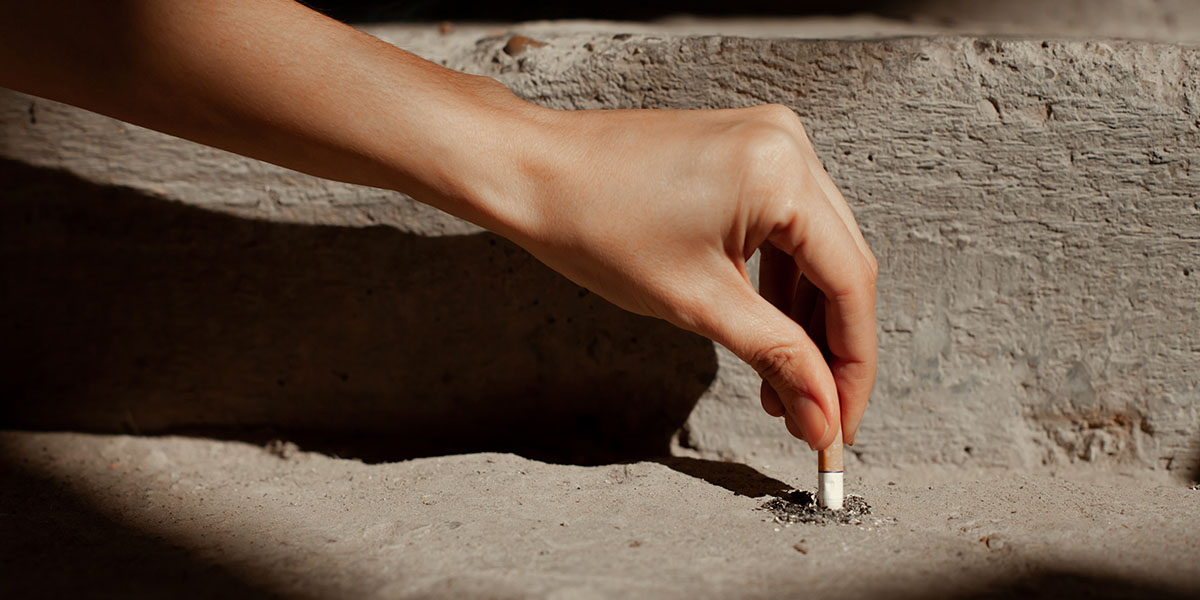About one in three Canadians will get shingles. But timely treatment can lessen symptoms, and a vaccine can help prevent it.
How to quit smoking
Why not make this the year you quit smoking? From medications to support groups, kicking your costly habit is easier than ever.

For “Mr. CBB,” quitting smoking was memorable. “My wife and I both quit on January 29 at the age of 36,” says the blogger. He chronicles “a young Canadian couple’s journey to debt freedom” at Canadian Budget Binder.
The first month was tough, he says. “I would find myself wandering into the kitchen looking for something to snack on. I craved sugar and I also baked a lot. So, I was eating and creating treats at the same time.” Though Mr. CBB gained 10 lbs. initially, he has since lost it through exercise and portion control. He also experienced short-lived side effects, such as insomnia, anxiety, dry mouth and nausea.
Mr. CBB knows he’s lucky he hasn’t had any setbacks. He hasn’t picked up a cigarette since that day in January. He credits lots of support for his success. His wife quit at the same time, and he checked in with the Smokers' Helpline each week. “My advice is to set a date and write down your goals. Don't let anything get in your way,” he says. “You’ll be able to look back and feel proud that you quit both for your health and your budget.”
Smoking damage is reversible
Smoking is responsible for an estimated 30% of all cancer deaths. It’s also related to more than 85% of lung cancer cases, according to the Canadian Cancer Society. It can also lead to:
- reduced lung function,
- breathing trouble,
- frequent respiratory infections,
- smoker’s cough,
- a higher risk of certain cancers, such as lung, mouth, throat, kidney and pancreas,
- a higher risk of heart disease and stroke,
- an increased risk of type 2 diabetes,
- chronic obstructive pulmonary disorder, a group of diseases that includes emphysema and chronic bronchitis,
- premature aging of the skin,
- decreased sense of smell, and
- yellowing teeth and bad breath.
“When you do quit there are tremendous benefits,” says Chris Haromy. He’s a respiratory therapist and Certified Respiratory Educator at the Ontario Lung Association. “In 10 to 15 years of quitting, the [lungs] can be back to the level of someone who has never smoked,” he says. “Circulation improves after even two weeks of quitting.”
You’ll also have more money in your pocket. Haromy cites a study from the University of Ottawa Heart Institute that found a pack-a-day smoking habit costs on average $3,640 a year, or $70 a week. “That’s a huge amount of money,” he says.
How to quit smoking
If you’ve decided to quit, there are many avenues to success. These include:
- Your will power. Going cold turkey is possible. You may experience side effects such as temporary weight gain or mood swings. They will go away after a week or two.
- Nicotine replacement therapy. This includes chewing gum, skin patches, lozenges, and inhalers. They all deliver small doses of nicotine to reduce your cravings.
- Smoking cessation drugs. Are you having trouble quitting and is your health suffering? Talk to your doctor about smoking cessation medications. However, these drugs are not for everyone and may have serious side effects.
- Acupuncture. Though not scientifically proven to help quit smoking, some former smokers swear by it.
Regardless of the path you choose, ensure you receive support from family, friends, co-workers, or support groups. And read up on how best to quit at the Ontario Lung Association’s Journey 2 Quit.
“No matter what method you choose, pairing it with counselling can significantly increase your chance of success,” says Kyle McKeown of the Smoker’s Helpline. “However, there is not one single magic method that can make a person stop smoking. It requires planning, understanding your smoking addiction and knowing what triggers you to smoke.”
This article is meant to provide general information only. It’s not professional medical advice, or a substitute for that advice.


